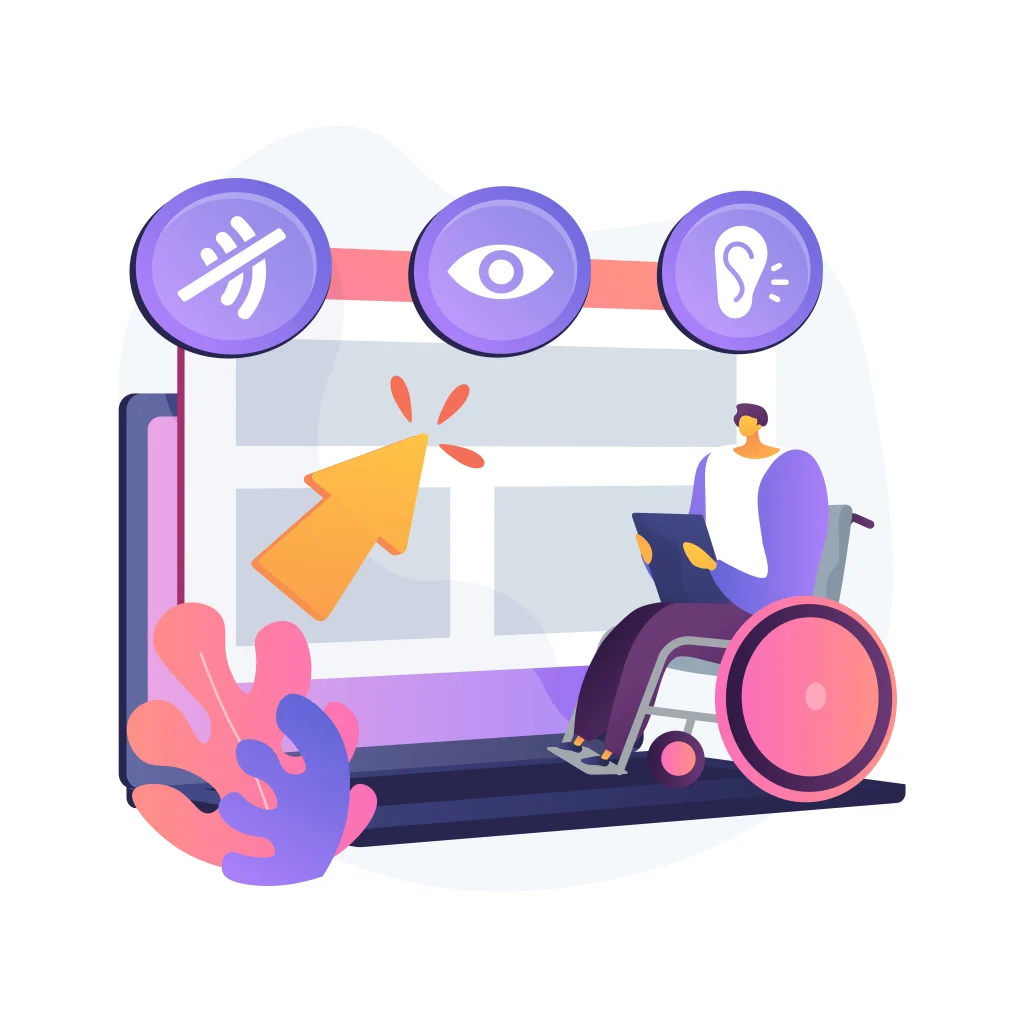In an increasingly digital-first world, having a website is no longer optional—it’s essential. But simply having a website isn’t enough. The true measure of success lies in how well it serves all users—including those with disabilities.
At Cloudix Digital, we champion the principle that the web should be inclusive by design. In this article, we’ll explore what web accessibility really means, why it matters more than ever, and how you can implement it effectively—without compromising on style or innovation.
What Is Web Accessibility?
Web accessibility refers to the practice of designing and developing websites so that people with disabilities can use them easily. This includes individuals with:
- Visual impairments (e.g., blindness, low vision, colour blindness)
- Hearing impairments (e.g., deafness, hearing loss)
- Motor difficulties (e.g., limited fine motor control, paralysis)
- Cognitive and learning disabilities (e.g., dyslexia, ADHD, autism)
Accessible websites remove barriers that prevent users from interacting with content. This involves everything from clear navigation and text alternatives to keyboard compatibility and responsive design.

Why Accessibility Should Be a Priority—Not an Afterthought
1. It’s a Human Right
Over 1 billion people globally live with some form of disability. Excluding them from online experiences is not just inconvenient—it’s discriminatory. Accessibility is about creating equal opportunities for education, employment, services, and community engagement.
2. It’s the Law
Many countries, including Malaysia, have enacted legislation that requires digital content to be accessible. The Web Content Accessibility Guidelines (WCAG), developed by the W3C, have become the global standard. Businesses that ignore these guidelines risk legal consequences and reputational damage.
3. It Enhances SEO & UX
Accessible websites are naturally optimized for search engines. Elements like structured headings, alternative text, and descriptive links help Google understand your content better. At the same time, these features improve usability for everyone, especially on mobile devices or slow connections.
4. It Builds Brand Loyalty
When users see that your brand goes the extra mile to make content accessible, they remember. Accessibility builds trust, credibility, and loyalty, especially among customers who often feel overlooked.
The 4 Core Principles of Accessibility (POUR)
Web accessibility is grounded in four core principles, as outlined by the WCAG:
1. Perceivable
Information must be presented in ways users can perceive—whether through text, sound, visuals, or assistive technologies. This includes:
- Providing alt text for images
- Ensuring sufficient colour contrast
- Using captions and transcripts for videos
2. Operable
Users should be able to navigate the website and complete tasks, regardless of how they interact with the web (mouse, keyboard, voice, etc.):
- Make all functionality keyboard-accessible
- Avoid time limits or flashing elements
- Provide clear focus indicators and skip links
3. Understandable
Your content and UI should be easy to read and use:
- Write in plain language
- Use consistent navigation and design patterns
- Offer clear instructions and error messages
4. Robust
Web content must be compatible with current and future technologies, including assistive tools like screen readers:
- Use semantic HTML
- Validate your code
- Test with real users and tools like NVDA or VoiceOver

Real-World Examples of Accessible Design
Here are some practical features that make a real difference:
| Feature | Accessibility Benefit |
|---|---|
| Alt Text on Images | Enables screen readers to describe images |
| Keyboard Navigation | Lets users move through content without a mouse |
| Closed Captions | Assists deaf or hard-of-hearing users in videos |
| Forms with Labels | Ensures screen readers announce field purpose |
| Colour Contrast Checks | Helps colour-blind users read content clearly |
Common Accessibility Mistakes to Avoid
Many well-meaning websites fall short due to overlooked details. Avoid these pitfalls:
- Relying solely on colour to convey meaning
- Not labelling form fields correctly
- Auto-playing video or audio without controls
- Using tiny fonts or overly decorative typefaces
- Creating non-responsive layouts that break on smaller screens
Tools to Help You Get Started
You don’t have to do it alone. There are many tools to help identify and correct accessibility issues:
- WAVE – Web Accessibility Evaluation Tool
- axe – Browser extension for automated testing
- Lighthouse – Chrome tool with accessibility scoring
- Contrast Checker – Test your colour schemes
- Screen readers – Test your site using NVDA or VoiceOver
Accessibility Is an Ongoing Process
Accessibility isn’t a checkbox. It’s a mindset and a commitment. As websites evolve with new features and designs, accessibility must remain a top priority at every stage—from wireframes to deployment.
Cloudix Digital’s Approach to Accessible Design
At Cloudix Digital, we take accessibility seriously. When we build or redesign websites, we integrate accessibility from the ground up:
✅ We follow WCAG 2.1 guidelines
✅ We design with inclusivity, clarity, and simplicity in mind
✅ We conduct regular accessibility audits and testing
✅ We educate our clients on maintaining accessibility post-launch
Our goal? To create websites that everyone can access, navigate, and enjoy—regardless of ability.
Let’s Build a Better Web—Together
Whether you’re a business owner, nonprofit, or entrepreneur, making your website accessible is one of the most powerful ways to expand your reach and demonstrate your brand values.
Don’t leave anyone behind.
Partner with Cloudix Digital to create a website that’s not only visually stunning—but also truly inclusive.
👉 Contact us today to schedule a consultation and take the first step toward a more accessible web presence.






